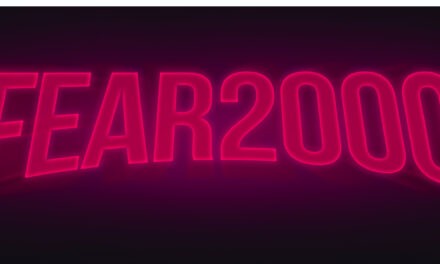Call for papers for the next annual conference of the Canadian Communication Association, which will be held from June 1-4, 2021 as part of the Canadian Federation for the Humanities and Social Sciences (CFHSS) 2021 Congress. This year’s theme is “Northern Relations.” Congress 2021 is organized this year in partnership with the University of Alberta in Edmonton.
We call for papers that explore and extend this theme and/or contribute to the range and depth of communications, media-culture, and digital technology scholarship in Canada, and internationally. Please note that we also welcome papers and panels addressing last year’s theme, “Bridging Divides: Confronting Colonialism and Anti-Black Racism,” following the cancellation of our 2020 conference due to the pandemic.
Proposal Submission Deadline
December 6, 2020. Decision Notification will be sent by the first week of February 2021
Impacts of the COVID-19 pandemic on our annual conference
- The 2021 CCA annual conference will not be cancelled this year.
- If your CCA membership was paid for 2020 and you wish to participate in our annual conference this year, your membership will roll over to 2021.
- If you submitted an abstract, a panel proposal or a roundtable that has been accepted for CCA 2020, you can re-submit the exact same proposal and it will be automatically accepted. Please tick the box in the submission platform identifying your paper as such . Should you prefer to revise it, we’re happy to peer-review it as a new submission.
- Regarding the format of our 2021 meeting, there is still uncertainty at this point. While a face-to-face only meeting in Edmonton is more and more unlikely, we cannot confirm whether our annual conference will be hybrid (both face-to-face and online) or exclusively online. We will notify you via the CCA listserv of our decision in mid-November 2020, prior to the deadline, and following recommendations from Congress and the CCA Board of members. We are launching the CFP now because we do not expect the general structure of our conference (single papers, panels and roundtables) to change drastically, even if we go online.
- Please note that going online exclusively might have an impact on the duration of our annual conference: to lessen the time spent online and to accommodate 6 time zones from sea to sea, we might decide to have shorter days, but a longer conference.
- Finally, we might not have access this year again to many of the things we love about CCA (walking together in a collective search for the building where the keynote is held, corridor conversations near the coffee table and those at the beer tent, random meetings at airports) but we value the circulation of ideas, the possibility to be stimulated by each other’s work and the collegial atmosphere that has always been that of our community. And that, we hope to achieve no matter the medium (take that, McLuhan).
Proposal Submission Details
Please submit your proposal at https://openconf.org/cca2021/openconf.php
Proposals may take the form of: A) single-paper presentations (1 paper), B) panel presentations (3 or 4 papers) or C) roundtable and workshops (maximum 5 participants). All proposals will be peer-reviewed by the conference organizing committee.
To present your paper at the conference, you must be a CCA member and you must have registered with Congress . To have your paper included in the final program, your CCA membership must be paid by Friday March 5, 2021. Congress dues must be paid prior to the beginning of the conference. If you wish to join the CCA, please visit the Membership section of the CCA website: http://acc-cca.ca/index.php/membership-adhesion/
Participants may present only one paper at the conference. While you may be listed as a secondary author on another co-authored paper, papers must be presented by one of the other authors. Those who present a paper may also participate in a roundtable.
A) SINGLE PAPER PROPOSALS must include:
➢ Author’s name, rank/status, and affiliation.
➢ Paper title. Please be brief (longer titles may be truncated by the online platform).
➢ Maximum of two topic areas within which your proposal is situated. These topic areas are helpful for organizing single paper submissions into coherent panels.
➢ An abstract (between 350 to 500 words) outlining: the research object, problem or question; the main argument or inquiry to be developed; the method of analysis and/or theoretical approach used; the significance of what is proposed in relation to existing scholarship in the field. Please ensure there is no self-identifying information in the abstract and do not submit a list of bibliographical references.
B) PANEL PROPOSALS must include a panel proposal submitted by the panel chair and individual paper proposals by each presenter in the panel:
For scheduling purposes, every panel participant must submit a separate paper proposal for their respective paper, as above, for each paper included in the panel – i.e., Author’s name, rank/status, and affiliation; Paper title; abstract; Please include the title or submission number of the panel of which you are participating in the “comment” field .
➢ Chair’s name, rank/status, and affiliation.
➢ Panel title. Please be brief (longer titles may be truncated by the online platform).
➢ Maximum of two topic areas
➢ An abstract (between 350 to 500 words) outlining the common themes, threads, approaches and scope of papers in the panel. Please ensure there is no self-identifying information contained in the abstract and do not submit a list of bibliographical references.
Note: It is best if the Chair submits the panel proposal first and provides each participant with the panel submission number that they can include in their respective submission alongside of the title of the panel. This helps to ensure that each panel participant is matched with the appropriate panel.
C) ROUNDTABLE and WORKSHOP PROPOSALS should be submitted by the roundtable chair, and must include:
Roundtables and Workshop proposals are less formal and include no more than five presenters, or four presenters and a convener. Formal papers are not given, instead each presenter offers brief comments and the emphasis is on group discussion. This format is best for topics on professional development and/or to address critical issues in the field. It is expected that the majority of presenters will be established scholars or professionals.
Please note: individual abstracts are not required for roundtable participants.
➢ Chair’s name, rank/status, and affiliation.
➢ Roundtable title. Please be brief (longer titles may be truncated by the online platform submission).
➢ Maximum of three topic areas
➢ An abstract (between 350 to 500 words) outlining: the workshop theme, problem or question to be addressed; a list of the presenters to be included in the roundtable and their respective university/industry affiliations; a brief description of the workshop presenters’ respective contributions; the significance of the roundtable in relation to existing scholarship in the field.
Prizes
Gertrude J. Robinson Book Prize: March 1, 2021
Nominations should be sent electronically to Dr. Tanner Mirrlees, (Tanner.Mirrlees@ontariotechu.ca) CCA President, and must indicate the book’s title, author, publisher, date of publication and author’s complete affiliation and contact information. For eligibility and full submission details, please refer to https://acc-cca.ca/index.php/prizes-prix/le-prix-gertrude-j-robinson
CRTC Prize for Excellence in Policy Research: February 1, 2021
Papers should be sent electronically to Dr. Daniel Paré (daniel.pare@uottawa.ca) , CCA past president. For eligibility and full submission details, please refer to https://acc-cca.ca/index.php/prizes-prix/prix-crtc-prize/
CCA Prize for Outstanding Graduate Student Paper: March 1, 2021
Nominated papers should be sent electronically to Dr. Tanner Mirrlees, (Tanner.Mirrlees@ontariotechu.ca), CCA President. Title page must indicate the paper’s title, the author’s name, contact info, university affiliation, and degree status. For eligibility and full submission details, please refer to https://acc-cca.ca/index.php/prizes-prix/le-prix-du-meilleur-article-etudiant/
Mahmoud Eid Graduate Award for Research investigating media, ethics, and the representation of Islam in Canada: March 1, 2021
Papers should be sent electronically to Dr. Tanner Mirrlees, (Tanner.Mirrlees@ontariotechu.ca), CCA President, and must indicate the paper’s title, the author’s name, contact info, university affiliation, and degree status. For eligibility and full submission details, please refer to https://acc-cca.ca/index.php/prizes-prix/mahmoud-eid-graduate-prize-prix-mahmoud-eid-detudes-superieures/
Audio-visual Support
We will provide you with more information regarding audiovisual support once we confirm the format of this year’s conference.
Student Funding
The CCA has limited funds to help defray the travel costs of student participants. Details are available at http://www.acc-cca.ca/studentreimbursement
Accommodation and Travel (if applicable)
Travel and accommodation information can be found on the Congress website at https://congress2021.ca
We hope you will join us for this annual conference,
Conference Chair: Dr. Ghislain Thibault CCA Vice-President Université de Montréal; ghislain.thibault@umontreal.ca
Local Area Coordinator: Dr. Gordon Gow, University of Alberta
For additional information, please visit our website cstonline.netacc-cca.ca/





